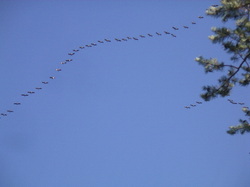 When I was a student at college I read "I know why the caged bird sings," the work that made Maya Angelou, who passed away a few days ago, famous. Already then she was such a revered figure in American literature that her pondus overshadowed my experience of whatever she wrote. Before setting eyes on the first page I already knew that Maya had been sexually abused as a child and that she was an Afro-American woman who had grown up in a racist, segregated America. Everyone knew because these were the things that everyone wanted to remember. While I could sympathize with her story, I couldn't connect to it, not at a deeper level. Maya wrote the book when she was 40 and perhaps it took passing that age to be able to get under the surface of what Maya in fact did during the two years that it took her to write this work. By then I had myself gone through a painful phase of discovery and reflection about the past. The presence of anger in my heart often bothered me. It wasn't beautiful, calm and empathetic. It seemed ugly and selfish. But what I learned from Maya, the story of her writing process and the result, was that giving recognition to one's anger is important. Writing, singing, dancing and painting it is vital to each of us and to our society, because it is the way to prevent anger from turning to bitterness, and to turn it into a positive contribution. This doesn't mean to hide it, transform it or get rid of it by some other means, but to respect it by expressing it. The part of her story that everyone else seemed to like to talk about, was the fact that Maya went silent for a long time after being abused as a child. This part of her story always intrigued me, even in my less appreciative college days. Literature unblocked this silence, and what is literature driven by, if not by anger?
0 Comments
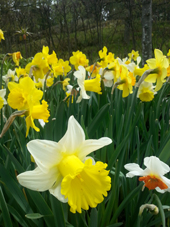 Different? Different? "The fear is setting in again," a friend of mine said on the phone today. I could feel my heart beating like a drum when he said it. What he meant was that people are already becoming afraid of speaking out in the new, polarized Europe where violence seems once again to be a viable political tool. The populist parties of western Europe insist that they do not use such methods, but doesn't beating someone who didn't seem 'Swedish' over the head with a metal pipe seem like violence to you? Senior members of our very own Sweden Democrat Party were caught on video doing just that. The shooting of innocent visitors outside the Jewish museum in Brussels this Sunday seemed like another extension of the Medusa, whose tentacles lash out furiously at whoever or whatever looks too different or associates itself with difference. As the clock ticked on, it struck me that what my friend said could just as well be a description of the perpetrators. After all, behind every threat and murderous act against another group for no other reason than who they are, is a wild fear of the other. Behind this is an even wilder fear of inferiority. These are connected by the horror that the other may be better than you and therefore must be eliminated or at the very least brought to heel. If there is something that I have learned through my years of researching National Socialism it is that the psychology of fear is not only a phenomenon of the victims. It is also most integral to the psychology of the perpetrator. Until we understand our human fears better - are prepared to make ourselves vulnerable by putting words to them and discussing them - we will always be in danger of turning upon another for no reason except that we are ourselves afraid. Thank you, friend, for ringing me this morning with this thought which seems a great deal less frightening this evening. 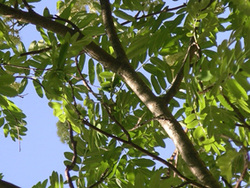 Sometimes if you take the time to look, you actually see things. Yesterday morning before work I found myself lying on my friend Cilla’s beautiful lawn looking up through the new green oak leaves at a perfect blue sky. We had gathered for morning yoga. I suspected that this old tree, no matter how grand, had many times over the centuries gone quite unnoticed by humans working, resting, fighting and loving underneath its great arms. Today, as I lay in the soft early summer’s grass, my attention was drawn to the blue in between the leaves. It was as though the tree was beckoning me to see that its own existence was not the important thing. “Look! Look! Don’t get caught under my overwhelming canopy!” it said. “There is so much more if you look beyond me.” This experience infiltrated my day as the analyses concerning the European elections blurted out from the radio, newspapers and television. How could Europe possibly be witnessing an upsurge of fascism after all that it has been through? As the day progressed, it seemed like a terrible black canopy closed in over us. Would we soon be back in the dark rot of exclusion, with lies as the number one rule of governance, in a brutal comedy where the strong have the right? Didn’t these supporters of the far right understand that their choice could only lead to their own self-destruction and the spiritual, emotional and psychological devastation of generations to come? I screamed in desperation under the dark canopy. My mobile telephone interrupted these agonizing thoughts, as it often does, sometimes for the better. It was an SMS from my daughter. “I’m going to party with Gudrun. Barbecuing with Fi. Don’t wait for me for dinner.” Suddenly I saw the blue between the leaves - that which lay beyond the darkening canopies that we think are slowly and irrevocably closing in over us - and felt a great, almost painful, joy filling my heart. My 15-year-old daughter had gone to celebrate the Feminist Initiative’s victory in the European elections. “Out with the fascists and in with the feminists!” was their slogan. Despite all of the brown- and black-shirted strong talk in Europe, in Sweden Fi took centre-stage, grabbing more air-time than any other group. They are only able to send one candidate, appropriately of Roma descent, but their victory is so much greater than itself in the times that we live in. It sends the message we need today: Dare to see the cracks in the dark canopy, the blue sky between the leaves. Dare to look further, and you will see a completely different picture. 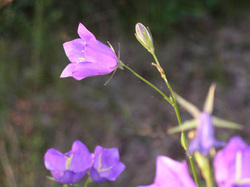 “Frihet är det bästa ting som sökas kan all världen kring.” (Freedom is the best thing that can be sought all around the world.) Sometimes there are little ditties stuck somewhere in the crevices of one’s mind - those songs of the past from school - that all of a sudden sing out to meet a new historical moment and in doing so become renewed. On the early morning walk with Ellie the dog and my husband this freedom song made its way out of the crevices of my husband’s mind to meet my thought for the morning. “Freedom always wins,” I said. What I meant by this was that no matter how much oppression there is in the world, what we witness time after time with increasing intensity is just this. Many have suffered and lost their lives, but humanity seems to move in that direction in every crisis that it faces, and win over the reverse tendency toward oppression and dictatorship. That was about the sum of my thought. I suspected that my husband would rebuff the thought immediately, tell me that I was naïve and come up with many well-crafted arguments that would deconstruct my beautiful construction for the morning. The neo-fascist times that we live in don’t, after all, appear on the surface to support my idea. Instead, he blurted out this little ditty and in doing so agreed with me. I was left speechless. Eager to learn about the origins of this song, I plugged it into Google upon returning home and found that it was the brainchild of 15th century Swedish bishop Thomas Simonsson of Strängnäs, and often used in the political struggle against the Danish oppressors. In Bishop Thomas’s world freedom meant national freedom and the right to self-determination. I thought about whether freedom today meant something else and indeed I think it does, but I found myself repeating this song as the events and thoughts of the day unfolded. Today’s newspaper documented the terrible floods in the Balkans. People have died, homes have been destroyed and land mines from the war at previously known locations are now floating about threatening to blow up at any moment. Amid all of this horror, there is a beautiful glimmer of light, and it is people who have created it. A man who had withstood torture in a concentration camp goes into the homes of his oppressors to save them from the floods. Ethnic divisions are floating away with the tide. That is freedom today. Later on in the day I found myself in a conversation about the way that the upsurge of fascist tendencies in Europe might actually force us to improve the quality of our democracies. Most who fall into these movements are simply dissatisfied with how democracy is working or not working, and are not particularly grabbed by any particular ideology. Suddenly there is some point and meaning in the seeming reversion to reactionary thinking. How do we improve the quality of our democracies so that they become better, perhaps even something new? Hundreds of thousands, perhaps millions of people are thinking about it because of what is happening, and because there is truth in the Bishop’s song. Freedom will always win because it is the best thing that can be sought. 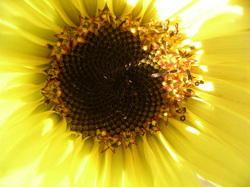 In a Europe in which we feel everyday that the reactionary winds are increasing in their velocity against our will, Conchita is a force that says we are not helpless. What did it take to stand up in front of 170 million people and be herself in a Europe where she knows growing numbers would like her and her 'kind' not to exist? Watching her gathered behavior after her win, and her quite deliberate message of peace and freedom, it is obvious to me that her campaign is as well-crafted as her appearance. Conchita had decided that if she could be herself in front of the 170 million, the world we live in would begin to grasp that its identity has changed - grown into many different identities - and perhaps we would stop wasting our time resisting it. As I watched the beautiful man/woman with the Arab's beard belting out her bond-like magic, it struck me that Conchita faces us with a newness that few of us have been able to assimilate. Even for those working with the idea of tolerance on a daily basis, at an individual level we are still grappling with the red and green lights of our judgment that switch on and off whenever we meet other people for the first time. Each time that I beheld her face - which I must admit confuses my brain's sense of how a person should look - it forced me to ask the question: Who is this person? Why does she look like this? What is her story? And so, Conchita forces me to go deeper, past the green and the red lights, to a place of learning. At times as I was watching her, I began to fear the worst. My thoughts went back to the history of my grandfather's formative years as a young man during the 1920s in Germany. This was a time of great creativity and experimentation (he would have said great decadence) in urban centers coupled with recurrent economic crisis. During this time, the far right nourished itself in rural areas where people felt alienated from these urban developments and could not understand. We need to remember this pattern and ensure that we can change it. This time we must not switch off the creativity and experimentation. We must carry on. People like Conchita cannot do it alone, and by standing up in front of the 170 million she took her best shot at facing people with the question: Where do you stand? Are you with me? 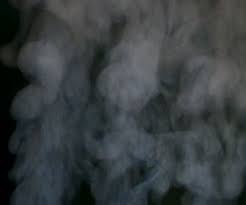 The sauna in Scandinavia has always been a place where arms have been forbidden, and where people meet in peace to cleanse themselves. This cleansing has not only to do with getting rid of the dirt in our skin, but also with unclogging those channels that connect us to the universe. According to Finnish folklore, the steam that rises from the sauna element, the löyly, symbolizes that connection between each individual and all matter, as well as I suppose even anti-matter. It is a needed reminder not just of the idea that we are all bound together, but also that there are things that bind us, shape us, that can be as elusive as the steam unless we take the time to experience them and to discuss them. Recently, while watching the löyly rising in a wood-fired sauna in the Stockholm archipelago, another connection became unclogged. I began speaking with the Finn sitting next to me about the legacy of the second World War in Finland. As the water sizzled on the stones and each drop began its ascent, he related the story of many families in Finland, where, for a very long time, there has been a silence about the alcoholism that gripped many men that survived the horrific experiences of the war, and the way this has trickled down in those families and hurt them. In Finland today, people have still not come to grips with the impact of this alcoholism which has lingered in many families in varying forms. While this may not sound like a relaxing conversation for the sauna, as the steam that connected us rose, I could understand why this conversation was happening here. This chat strengthened a theory that has been gaining strength for me for quite some time, which is that perhaps in the rise of fascism and the far right in Europe what we are seeing is not just a reaction to more recent waves of immigration, economic crisis and youth unemployment, but in fact a consequence of the deafening silence experienced in families throughout Europe for almost seventy years. It is a point of irony that in the unit of our society in which we are supposed to be closest to others, we have experienced the greatest silence about the past. Ironically too, families seem to tend toward this silence for self-preservation and survival, when in fact the guilt and anger that is frequently transmitted by it is nothing but destructive. Family members must speak to one another to face the past together for the sake of peace, and just perhaps we should be taking more saunas. 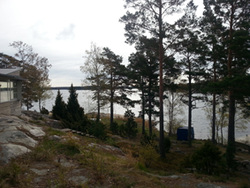 Eksäret, Stockholm Archipelago, Foundation Ekskaret, https://sites.google.com/site/foundationmanniskan/ekskaeret Eksäret, Stockholm Archipelago, Foundation Ekskaret, https://sites.google.com/site/foundationmanniskan/ekskaeret During the past three days I’ve had the pleasure of participating in a 3-day workshop with members of the Tällberg Foundation. It has taken upon itself the mission of exploring in the most uncompromising way the question that is on all of our minds but that many of us haven’t quite yet got to formulating: “How on earth can we live together?” With this question one takes a breath-taking leap into trying to see patterns, connections and relationships that are there for us to discover but which we haven’t bothered with, or which in our everyday we see in a fleeting moment until they vanish in schedules and other structures that destroy free thinking. In the end it is about giving time to look with an uncompromisingly open mind which is prepared to reach the conclusion that it will never know. What I take with me from Tällberg is the feeling that the greatest challenge to answering the big question is our own human instinct to build a shelter in which we can be warm and keep the wolves outside. It’s an instinct that has had a certain value to our survival, until it reaches absurd levels, as it has, for example, with consumer society today, and then becomes counterproductive. What Tällberg reminds me of is that inside the shelter we end up believing that there are only wolves outside. Yet, there is so much more than that, and, by the way, the wolves may not be the greatest danger at all. The founder of this organization, a visionary called Bo Ekman, now Chairman Emeritus, explained the reason that he formed this unusual organization and here, most unexpectedly, I found the connection to my own story. As a child in Sweden after the war he had prepared a presentation for his class about what a day in a concentration camp looked like. He had done a great deal of research about this, partly I think to shock his teacher who had been a strong supporter of National Socialism during the war. He shared a photograph of this man which he managed to snap just as he was about to take the cane to another child. When I thought of the beautiful tree that has grown out of that troublesome little seed planted in Bo Ekman so many years ago, I see that there can be so many extraordinary things that can grow out of the many seeds planted in that once terrifying garden of legacies left by the second World War. 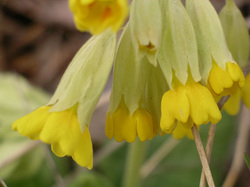 Spring 2014 is here and I've decided that it is time to return to Julie's Island, as I've got some new perspectives to share. During the past few years, my voice became increasingly silent when it came to columns and blogs, as I turned to focus on some long overdue research and writing. Some years ago, I learned by my own research that my grandfather was a fanatic National Socialist and an SS man. After the war he left for Brazil, where I was born. Yes, and? He was my grandfather, he lived in a different time with different values. What he and his comrades did has nothing to do with me. Time to forget about it and to move on - return to my beautiful island world of health and nature, rather than to dwell in this underworld of murder and hatred. I've heard this view repeated quite a few times by now, but I've long had the feeling, confirmed by what I have learned, that history in general, and our family histories in particular, influence us in most profound ways. It is only when we choose to walk into those caves, the secret family wombs that we emerged out of, and shed light on the frightening darkness, that we begin to see the connections between the past and the present, and be able to ask relevant questions about the future. This isn't news, you might say. Of course, all of us are influenced by and, one way or another, products of history. The great tectonic forces of our cultures have caused our families to move, sometimes very far away to settle in new lands, and has placed them in certain conditions, economic and social, which form our circumstances. Yet, what interests me is the way that these forces impact the micro-culture of our families and the nano-culture of individuals within these. Science has long since begun to look into our cells and begun to realize that the traumas of our families are imprinted there. This doesn't mean that we are doomed to repeat bad behaviors, but it does mean that each of us has a responsibility to become conscious of what history has left us with at a personal level, and to use this as a source of strength to ask new questions and make a difference. We live in times when the creed of my grandfather raises its ugly head again throughout Europe. Who could have believed it after we know what happened as a result of the last monstrous experience? Throughout the world, extremism and nationalism seem to be the single most dangerous forces thwarting progress. Here in my home country of Sweden, the rise of racist, facist and extreme nationalist forces compels those of us who have lived close to history, who are conscious of it in our cells, and who remember the details and parallels which are often overlooked or underestimated, to speak out. Let's make Julie's Island into a place for knowledge and reflection about what we bear with us and how we can use it well to create beauty and consciousness. In addition, you are welcome to my overhauled personal web site where you can catch up with me and the things I get up to. Happy Spring. |
AuthorSee About. Archives
November 2023
Categories |
 RSS Feed
RSS Feed